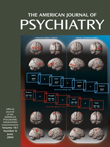From clinical forensic experience, I have found that individuals, especially females, who report sexual abuse as children are at higher risk for rape and other sexual assaults as adults. I have also found that most of the men whom I have examined who have been convicted of mass murder or as serial killers have a history of sexual abuse as children. Thus, child sexual abuse is a most important factor in the psychiatric history of patients who have been victimized and defendants who have been charged with violent crimes.
This book focuses not only on the clinical aspects of child sexual abuse but also on the research data supporting the finding that individuals who have been abused as children are at a higher risk for adult sexual assault or adult sexual behavior that may lead to sexually transmitted diseases, especially HIV.
It is no surprise to learn that three of the editors are with the Centers for Disease Control and that two of them specialize in research on HIV/AIDS. The fourth editor is with the Center for Mental Health Research on AIDS at the National Institute of Mental Health.
The book is divided into four sections. The first is an introduction asking the question about the link between child sexual abuse and adult sexual risk. This lays the foundation for the rest of the text. Section 2 develops the clinical aspects of child sexual abuse and adult sexual risk, including relationships, revictimization, and HIV. The authors discuss the implications for boys as well as girls who have been sexually abused.
Section 3 discusses the theoretical bases for adult risk in revictimization, including cognitive, social, and behavioral mediators. For example, several chapters include attitudinal paths for the link between childhood trauma and adult HIV risk and the link between child sexual abuse and risky sexual behavior. One chapter discusses the role of dissociative tendencies, a controversial area in the field of sexual trauma and memory recovery. The important issue appears to be the link between victims of child sexual abuse who later become revictimized as adults.
The final section discusses interventions to promote healthier sexual outcomes among the survivors of child sexual abuse. The hopeful notion of the book is that it does not have to be inevitable that people who were sexually abused as children will be victimized again as adults. The chapters in this section discuss interventions to prevent further abuse, risk-reduction approaches, group therapy for victims of child sexual abuse, and effective risk-reduction programs.
Most of the authors of the chapters are psychologists and researchers. David Spiegel is the only M.D., and his work with hypnosis and memory retrieval is well-known. The book is well written, well edited, and well referenced. For the researcher, the current notions of the effect of childhood sexual abuse on adults are evident, but the issues raised suggest that further research is needed. For the clinician, the book is especially helpful in understanding the motivation, behavior, and attitude of victims of child sexual abuse who come for help with psychological problems as adults. Only by understanding the linkages between child sexual abuse and risky adult sexual behavior can therapists institute intervention and risk prevention.
Because of the importance of the effect of child sexual abuse on victims and on others who may be victimized by men who have been abused as children, we need to study this process more intensely and try to prevent the damage that occurs later as a result of the trauma to these children. It is indeed a monumental challenge, especially in a free society. The authors indicate that they wrote this book following heated discussions among themselves and their colleagues with the intent of preventing further childhood sexual abuse as much as possible and protecting future generations of children. It is not only a noble goal but a necessary one that clinicians who understand the process and the linkages can help achieve. It is also essential for researchers to continue their efforts to shed more light on this murky area. This book is an important beginning of that process. It gives the foundation of knowledge and experience that we have today based on past experience, leading to future progress.

